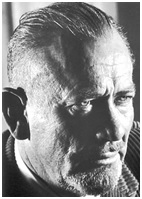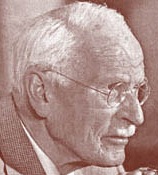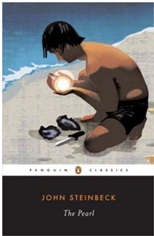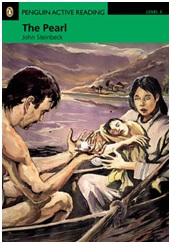|
 |
|
 |
|
|
||
The Pearl - Happiness and Success
The Pearl (1947)
Written by the American, John Steinbeck (1902-68), pictured right.
Set in... A village of native Indians in the Gulf of California, Mexico, around the beginning of the twentieth century. Fun facts
Key characters Kino, a Mexican Indian pearl diver Juana, his wife Coyotito, their baby son The story Despite being short of money and food, a poor Mexican family are extremely happy:
Kino awakes with a beautiful song of love in his head, but, after breakfast, Coyotito is bitten by a scorpion. Juana sucks out as much of the poison as she can and tells Kino to send for the doctor who doesn’t come. So they take Coyotito to the doctor who is rich, greedy and Spanish (much to Kino’s disgust because the Spanish colonials have always exploited his people, particularly the greedy pearl buyers). He is even angrier about the doctor’s refusal to see the baby and accept his pearls as payment. The next day Juana removes the swelling with a primitive seaweed remedy and Kino then joyously discovers the world’s finest pearl (the ‘Pearl of the World’) , news of which spreads quickly. Kino dreams of all the things he can buy:
Immediately people want his money:
This greed creates hatred and jealousy towards Kino. Despite knowing that the baby is now completely well, the doctor gives him a drug that makes him very sick again, so that he can demand money for another medicine. Kino says he will pay him the next day when he sells the pearl. The doctor sees where the pearl is buried. Kino is now afraid of everyone. That night someone unsuccessfully tries to steal it, injuring Kino. Juana says it will destroy them and urges him to throw it back into the sea. But he refuses and tries to sell it. But all the pearl buyers have agreed to offer a low price. Feeling cheated, Kino decides to sell it in the capital city. After another unsuccessful burglary, Juana takes the pearl in the middle of the night and is about to throw it in to the sea, when an enraged Kino catches up with her and punches her. He then kills another potential thief. So, fearing a murder charge, Juana tells him they must leave the village. Going back for their things, they find Kino’s canoe (a family heirloom, his most prized possession and vital to his job) destroyed by vandals, and their hut in flames. They hide in Kino’s brother’s hut and then begin a long journey to the capital. But three thieves follow, and Kino is forced to kill them. A rifle shot also kills Cyotito. With Juana and the dead baby, he finally throws the pearl into the sea with all his might.
Lessons for happiness and success
1. “The love of money is the root of all evil” This saying of St Paul (1 Timothy ch.6 v.10) is illustrated by the greed, jealousy and hatred that the pearl creates. Steinbeck writes: “The essence of pearl was mixed with the essence of men and a curious dark residue was precipitated”. Kino’s determination to keep the pearl leads to:
2. Be good Kino learns that the person you are is much more important than the things you own, like the pearl. He and his family are happier when they are honest and loving without the temptation of money.
3. Live simply The simple (but happy) lives of the Indians contrast with the greed and extravagance of the doctor and the pearl buyers. 4. Do something useful and worthwhile Kino is happy as a pearl diver, but the pearl’s discovery destroys his canoe, which is vital to his work.
5. Pain isn’t all bad The heartache of Coyotito’s death:
6. The best marriages are between equals The pearl saga reveals Juana as:
7. Listen and learn If Kino had listened to Juana’s advice to throw away the pearl, much sadness would have been avoided.
8. Accept the past Once he finally throws the pearl away, Kino has no regrets about his decision. His acceptance of its evil makes him avoid tortuous questions like: 'What if I had sold the pearl and been rich?' 9. Humour helps Kino laughs a great deal about losing such a valuable pearl.
10. Love nature The Indians appreciate the beauty of the countryside around them, so they respect and look after it. 11. Know yourself The pearl makes Kino more aware of his strengths and weaknesses, leading to his final realization that it had caused him more harm than good.
Key quotes on money and happiness This pearl has become my soul ... If I give it up, I shall lose my soul, Kino But the pearls were accidents, and the finding of one was luck. It has brought evil, Kino, my husband, it will destroy us, Juana
Two literature websites to recommend 1. sparknotes.com 2. litcharts.com |
|
|
||
|
|
||
| Copyright © wisdomtowin.com 2025 All Rights Reserved | ||
|













